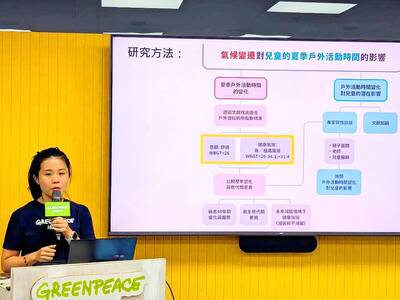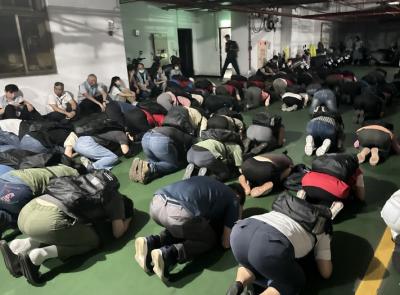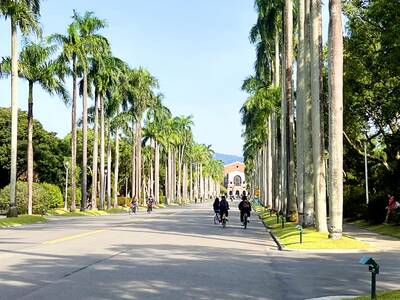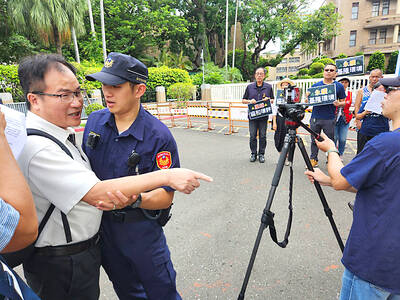Seventy-eight percent of Taiwanese drink less than 1,800ml of water per day and 40 percent drink less than 1,200ml, which could increase the risk of kidney damage, a survey released yesterday by the Taiwan Society of Nephrology showed.
About 320,000 people in Taiwan have chronic kidney disease and about 83,000 people are on dialysis, said Hsu Chih-cheng (許志成), a researcher at the National Health Research Institutes, which conducted the online survey.
The survey aimed to gauge the public’s knowledge about kidney functions and awareness of kidney diseases, as well as daily habits that are associated with kidney health, he said.
The poll suggests that many people do not drink enough water on a daily basis, Hsu said.
About 70 percent of respondents had drunk at least one cup of a sweetened beverage in the previous week, he said.
Of respondents who had drunk at least five cups of sweetened beverages in the previous week, about 60 percent said the drinks were their main source of fluid and 49 percent said they do not exercise at least three times a week, putting them at high risk of developing chronic kidney disease, Hsu said.
About 60 percent of respondents did not know where the kidneys are in the body, about 40 percent did not know their function, and about 18 percent did not know that long-term use of painkillers could damage the kidneys, Hsu said.
A kidney disease report last year showed that the majority of people under 40 and on dialysis have diabetes, and that high intake of sweetened beverages, salty foods and insufficient water consumption or exercise could overburden the kidneys.
Chronic hypertension, hyperlipidemia, diabetes and metabolic syndrome could also harm the kidneys, Taiwan Society of Nephrology president Lu Kuo-cheng (盧國城) said.
The survey was conducted last month and collected 1,515 valid questionnaires.

The government should improve children’s outdoor spaces and accelerate carbon reduction programs, as the risk of heat-related injury due to high summer temperatures rises each year, Greenpeace told a news conference yesterday. Greenpeace examined summer temperatures in Taipei, New Taipei City, Taoyuan, Hsinchu City, Taichung, Tainan and Kaohsiung to determine the effects of high temperatures and climate change on children’s outdoor activities, citing data garnered by China Medical University, which defines a wet-bulb globe temperature (WBGT) of 29°C or higher as posing the risk of heat-related injury. According to the Central Weather Administration, WBGT, commonly referred to as the heat index, estimates

Taipei and other northern cities are to host air-raid drills from 1:30pm to 2pm tomorrow as part of urban resilience drills held alongside the Han Kuang exercises, Taiwan’s largest annual military exercises. Taipei, New Taipei City, Keelung, Taoyuan, Yilan County, Hsinchu City and Hsinchu County are to hold the annual Wanan air defense exercise tomorrow, following similar drills held in central and southern Taiwan yesterday and today respectively. The Taipei Mass Rapid Transit (MRT) and Maokong Gondola are to run as usual, although stations and passenger parking lots would have an “entry only, no exit” policy once air raid sirens sound, Taipei

Taipei placed 14th in the Quacquarelli Symonds (QS) Best Student Cities 2026 list, its highest ever, according to results released yesterday. With an overall score of 89.1, the city climbed 12 places from the previous year, surpassing its previous best ranking of 17th in 2019. Taipei is “one of Asia’s leading higher-education hubs,” with strong employer activity scores and students “enjoying their experience of the city and often keen to stay after graduation,” a QS staff writer said. In addition to Taipei, Hsinchu (71st), Tainan (92nd), Taichung (113th) and Taoyuan (130th) also made QS’ list of the top 150 student cities. Hsinchu showed the

Environmental groups yesterday filed an appeal with the Executive Yuan, seeking to revoke the environmental impact assessment (EIA) conditionally approved in February for the Hsieh-ho Power Plant’s planned fourth liquefied natural gas (LNG) receiving station off the coast of Keelung. The appeal was filed jointly by the Protect Waimushan Seashore Action Group, the Wild at Heart Legal Defense Association and the Keelung City Taiwan Head Cultural Association, which together held a news conference outside the Executive Yuan in Taipei. Explaining the reasons for the appeal, Wang Hsing-chih (王醒之) of the Protect Waimushan Seashore Action Group said that the EIA failed to address